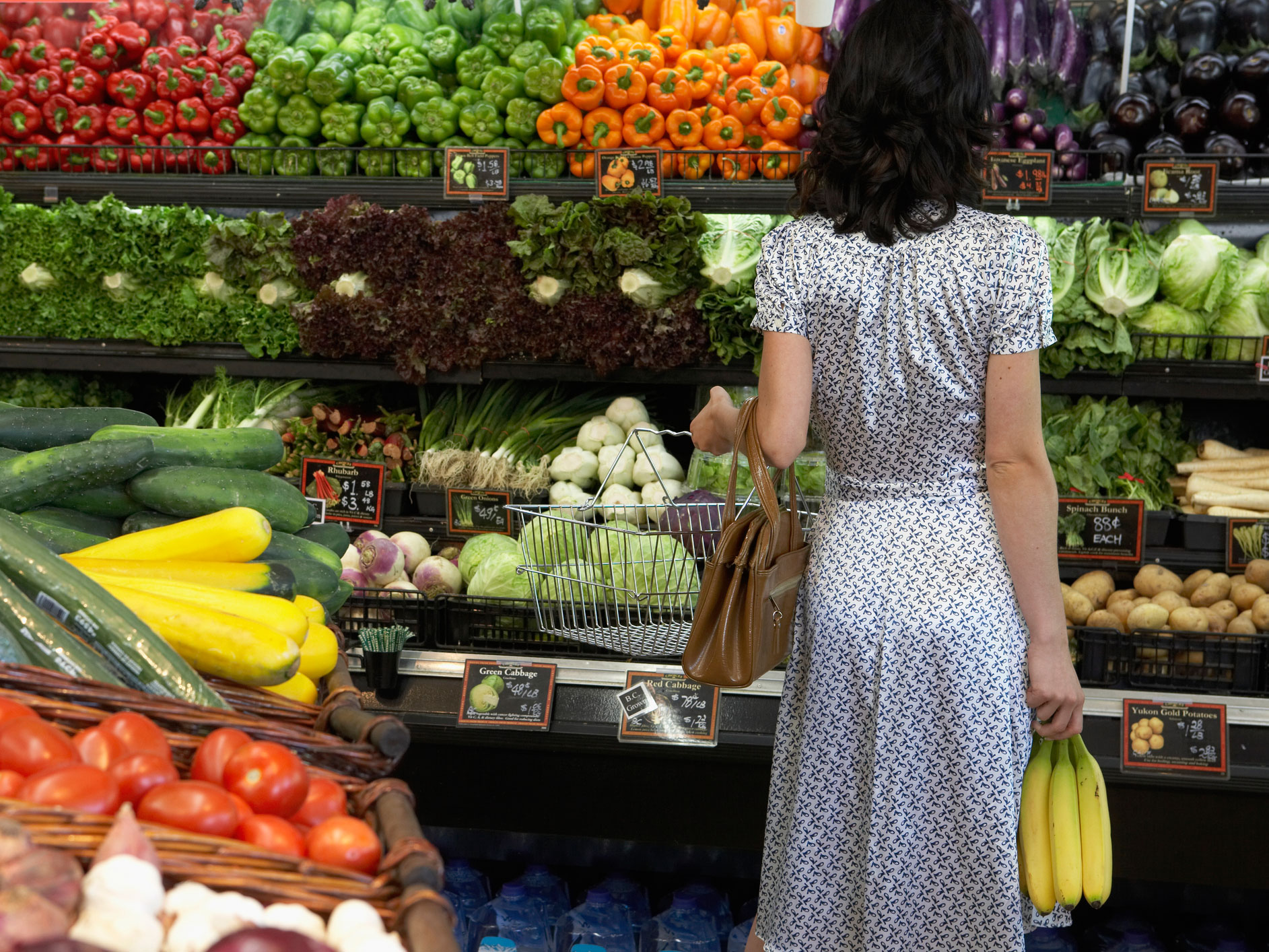Get Easy Health Digest™ in your inbox and don’t miss a thing when you subscribe today. Plus, get the free bonus report, Mother Nature’s Tips, Tricks and Remedies for Cholesterol, Blood Pressure & Blood Sugar as my way of saying welcome to the community!
Antibiotic-resistant superbugs are hitching a ride on your produce

When most of us think of antibiotic-resistant infection, we probably think about someone who goes into a hospital for a simple surgery and ends up with a potentially deadly infection.
We may even worry about the person coughing next to us in the doctor’s office while we wait for a checkup or the cashier at the grocery store who blows their nose before handing back our credit card.
But, while all of these are definitely possible sources of antibiotic-resistant germs, there’s another vehicle for antibiotic-resistant transmission most of us have probably never even considered…
Antibiotic-resistant infections linked to agriculture
The U.S. Centers for Disease Control and Prevention — the CDC – has estimated that of the 2 million antibiotic-resistant infections that occur each and every year in the United States, 20 percent are linked to agriculture. Yup, agriculture not person-to-person transmission or even hospital-acquired infections.
This estimate is based on the number of patients who are known to directly acquire antibiotic-resistant superbugs from eating meat. But, while that might seem like something that makes sense to you — after all, we all know that meats are able to carry infections like E. coli, salmonella, and even the human version of mad cow — there’s another agricultural source of antibiotic resistance as well… plants.
Plants can also spread antibiotic-resistant “superbugs.” In other words, that salad you ate for lunch or the spaghetti squash side you had for dinner could have directly transmitted resistant bacteria to you the second they passed your lips. It’s a danger that can come back to sicken you (or worse) years after you’re first infected.
That’s because according to scientists, the spread of antibiotic-resistant superbugs from plants to humans is different from outbreaks of diarrheal illnesses caused immediately after eating contaminated vegetables. They say that the superbugs found on plants can basically hide in (or “colonize”) your intestines for months or even years, without any obvious symptoms. All the while a dangerous colony is growing that, when it escapes, can lead to serious infection.
Plant dangers
That danger is exactly what a new study from Keck School of Medicine at the University of Southern California took a deeper look at…
The researchers developed a novel, lettuce-mouse model system that does not cause immediate illness to mimic human consumption of superbugs with plant-foods. They grew lettuce and exposed it to antibiotic-resistant E. coli. They then fed it to the mice and analyzed their fecal samples over time, making a number of important findings, including:
- Antibiotic resistance from plants is a real and present danger.
- To overcome the antibiotic-resistant epidemic we’re facing, the entire food chain has to be addressed.
- Certain things can increase your danger of colonization by antibiotic-resistant pathogens from plants, such as taking certain antibiotics and antacids, which affect the ability of superbugs to survive the passage from the stomach to the intestines.
As Marlène Maeusli, a Ph.D. candidate at Keck School of Medicine at the University of Southern California, and lead author on the study put it, “The environment and human health — in this context via agriculture and microbiomes — are inextricably linked.”
Food Safety and Superbugs
I’m sure by now, you’re wondering what you can do to protect yourself.
Unfortunately, when it comes to superbugs, the answer is never simple but according to a WHO Bulletin on resistant bacteria in the food chain, there are a few things you can do that help.
First, they point out that the cooking process destroys most bacteria, even antibiotic-resistant ones, so making sure to thoroughly cook your meat and vegetables can help. Second, it’s important to remember that when you’re working with plants and meats, handling them, cutting them, and preparing them can spread the germs around your kitchen. So, you need to take steps to thoroughly clean your hands, utensils, kitchen counters and sink.
Related: Civil War-era medicines could fight antibiotic-resistant bacteria today
You should take special precautions if you’re taking antibiotics or antacids or have taken these medications recently since they could increase your risk.
Although there’s no conclusive research on the subject yet, I would also recommend taking a quality probiotic daily. These beneficial bacteria are there to boost your gut health which also supercharges your immune system to help you fight off infections. And, by replenishing your good bacteria, it may give you an edge in crowding out the bad.
Sources:
- Plants may be transmitting superbugs to people — American Society for Microbiology
- What to do about resistant bacteria in the food-chain? — World Health Organization













